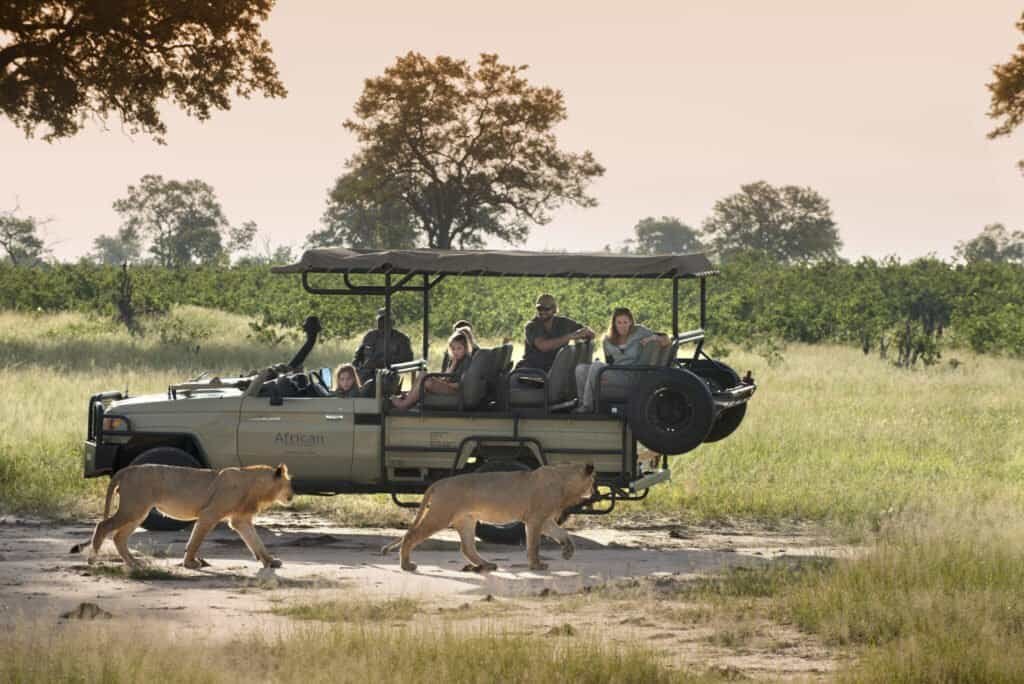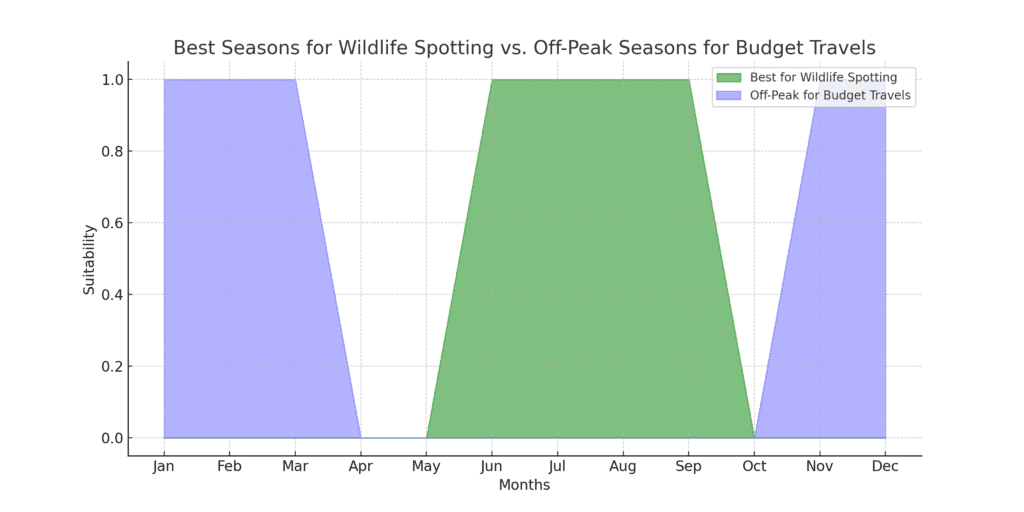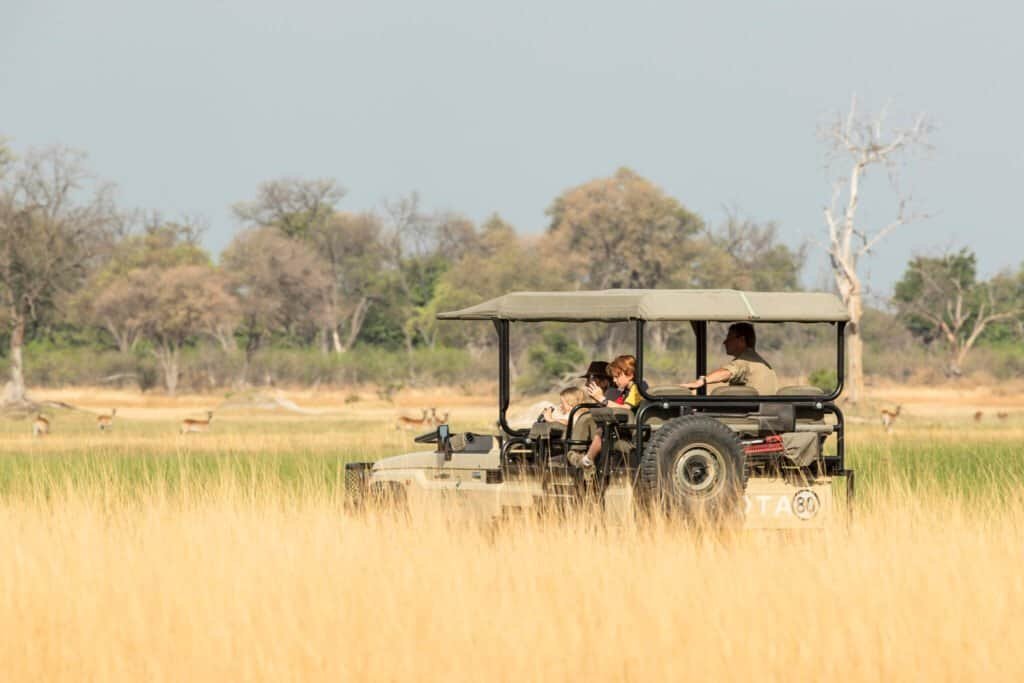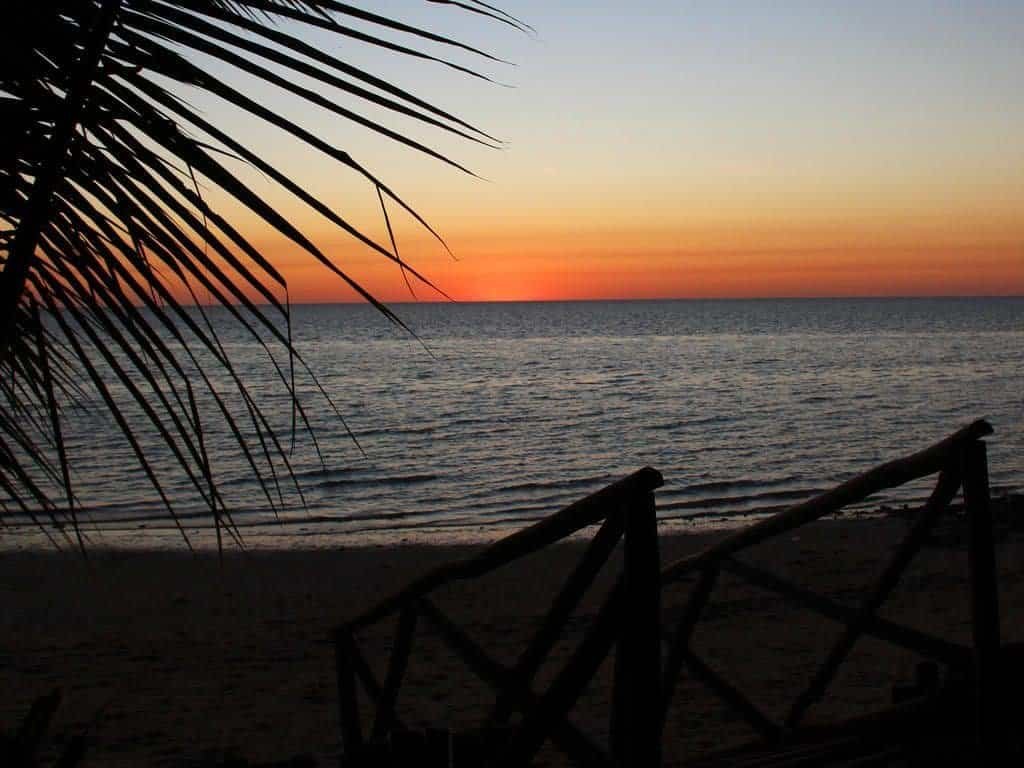Introduction

Unleash the wild side of your family with an unforgettable safari experience. Discover the magic of the African wilderness, bond with your loved ones, and create memories that will last a lifetime. You’ll find everything you need to get started in my complete guide to family safaris in Africa, with links to more detailed content on many of the specific topics mentioned. Ready? Then let’s go!
Why Choose Africa for Your Family Safari?
Biodiversity and Unique Animal Encounters
Africa boasts an unparalleled diversity of wildlife, from majestic elephants to elusive big cats. Get up close and personal with these incredible creatures in their natural habitats.
Cultural Richness and Diversity
Immerse your family in the vibrant cultures of Africa. Experience the warmth and hospitality of local communities, learn about ancient traditions, and gain a deeper understanding of the continent’s rich heritage.
Top Family-Friendly Safari Destinations in Africa
South Africa’s Kruger National Park
Embark on an adventure in one of Africa’s most iconic wildlife reserves. Spot the Big Five, explore diverse ecosystems, and enjoy family-friendly activities and accommodations in Kruger National Park.
Tanzania’s Serengeti
Witness the awe-inspiring Great Migration, where millions of wildebeest and zebras traverse the Serengeti plains. Experience the thrill of game drives and witness nature’s greatest spectacle.
Kenya’s Maasai Mara
Step into the land of the Maasai warriors and witness the dramatic wildebeest crossings. Discover the Maasai culture, go on thrilling game drives, and create unforgettable memories in magical Kenya.
Botswana’s Okavango Delta
Embark on a unique safari experience in the heart of the Okavango Delta. Explore the waterways by mokoro (traditional canoe), spot rare bird species, and encounter elephants and hippos.
Niche Pick: Zambia’s Lower Zambezi National Park
Escape the crowds and discover the hidden gem of Lower Zambezi National Park. Enjoy canoe safaris, fishing excursions, and breathtaking views of the Zambezi River.
Planning Your Safari: When to Go

To make the most of your family safari, it’s important to consider the best time to visit. Here are some factors to keep in mind:
Best Seasons for Wildlife Spotting
Each destination has its own peak wildlife viewing seasons. Research the specific regions you plan to visit to ensure you catch sight of your favorite animals in action. For example, the dry season in Botswana’s Okavango Delta (May to October) offers excellent game viewing opportunities as animals gather around water sources.
Off-Peak Seasons for Budget Travels
If you’re looking to save on costs, consider traveling during the shoulder or off-peak seasons. Prices for accommodations and flights may be more affordable, and you’ll also encounter fewer crowds. However, keep in mind that wildlife sightings may vary during these times.
Safety First: Tips for a Safe Safari with Kids
Ensuring the safety of your family is paramount during a safari adventure. Here are some essential tips to keep in mind:
Health Precautions: Vaccinations, Malaria Prevention
Before embarking on your African safari, consult with a travel health professional to understand the necessary vaccinations and medications required for your destination. Malaria is prevalent in many African countries, so be sure to take appropriate preventive measures such as using mosquito repellent and sleeping under mosquito nets.
Wild Animal Safety
While encountering wild animals is an incredible experience, it’s important to remember that they are still wild and unpredictable. Follow the instructions of your experienced guides, maintain a safe distance, and never approach or feed any animals. Educate your children about the importance of respecting wildlife and adhering to safety guidelines.
Packing Essentials for Family Safaris in Africa

Proper packing is essential for a successful and comfortable safari. Here are some essentials to include in your packing list:
What to Wear
- Lightweight, breathable clothing in neutral colors to blend with the surroundings.
- Long-sleeved shirts and pants to protect against the sun, insects, and thorny vegetation.
- Comfortable walking shoes or hiking boots for game drives and nature walks.
- A wide-brimmed hat and sunglasses for sun protection.
- A lightweight waterproof jacket or poncho for unexpected rain showers.
- Check out my articles on what to wear both during the day and in the evening.
Must-Have Gadgets and Gear
- Binoculars for wildlife spotting and birdwatching.
- A good quality camera or smartphone with a zoom lens to capture those unforgettable moments.
- Extra memory cards and batteries to ensure you don’t miss any photo opportunities.
- A portable charger to keep your devices powered up during long game drives.
- A headlamp or flashlight for navigating campsites at night.
Kid-Specific Necessities
- Sunscreen with a high SPF to protect your children’s delicate skin.
- Insect repellent suitable for children to ward off mosquitoes and other bugs.
- Snacks and water bottles to keep your little ones energized and hydrated.
- Comfort items such as a favorite stuffed animal or blanket to help them feel at ease in unfamiliar surroundings.
Remember to pack light and consider any weight restrictions imposed by airlines or safari operators. Laundry services are often available at lodges, so you can pack fewer clothes and have them washed during your stay.
Eco-Friendly Safari Tips
When embarking on a family safari, it’s important to be mindful of the environment and minimize your ecological footprint. Here are some eco-friendly tips to consider:
Choosing Sustainable Lodges
Opt for accommodations that prioritize sustainability and conservation efforts. Look for eco-lodges that use renewable energy sources, practice responsible waste management, and support local communities. These lodges often provide educational opportunities for guests to learn about conservation efforts.
Minimizing Ecological Footprint
- Respect wildlife and their habitats by observing from a safe distance and not disturbing their natural behaviors.
- Follow the principles of Leave No Trace: pack out what you pack in, dispose of waste properly, and avoid leaving any trace of your visit.
- Conserve water and energy by taking shorter showers, turning off lights and electronics when not in use, and reusing towels and linens.
By being conscious of your impact on the environment, you can contribute to the preservation of Africa’s incredible ecosystems for future generations.
Cultural Etiquette and Interaction
Interacting with local communities can be a rewarding part of your family safari experience. Here are some tips for respectful cultural engagement:
Respecting Local Communities
- Learn about the customs and traditions of the local communities you encounter and show respect for their way of life.
- Ask for permission before taking photographs of individuals or their homes.
- Support local artisans and businesses by purchasing their handmade crafts and products.
Guided Village Tours
Consider participating in guided village tours led by knowledgeable locals. These tours provide insights into the daily lives, traditions, and challenges faced by the communities, fostering cultural exchange and understanding.
Choosing Your Safari Type
When planning a family safari, it’s important to consider the different safari types available. Here are some options to help you choose the best fit for your family:
Guided Safaris
Opting for a guided safari allows you to have experienced guides who are knowledgeable about the wildlife, ecosystems, and local culture. They will ensure your safety and provide valuable insights during game drives or walking safaris. This is a great option for families who prefer a structured and informative experience.
Self-Driven Safaris
For families seeking more independence and flexibility, self-driven safaris can be a thrilling option. Renting a 4×4 vehicle equipped for off-road adventures allows you to explore at your own pace. However, it’s important to familiarize yourself with the local driving regulations, wildlife behavior, and safety precautions before embarking on a self-driven safari.
Walking Safaris: Are They Suitable for Kids?
Walking safaris offer a unique opportunity to experience the African wilderness on foot. While they can be an incredible adventure for older children and teenagers, it’s important to consider their physical capabilities and attention span. Some safari operators offer shorter, family-friendly walking safaris with experienced guides who prioritize safety.
Consider your family’s preferences, the age of your children, and the level of adventure you seek when choosing the type of safari that best suits your needs.
Budgeting for Your Safari: Costs and Savings
Understanding the costs associated with a family safari is crucial for effective budgeting. Here are some factors to consider:
Average Costs per Day
Safari costs can vary depending on the destination, accommodation type, activities, and time of year. On average, a family safari can range from $250 to $1,000 per person per day, including accommodations, meals, park fees, and activities. Luxury lodges and private reserves tend to be more expensive, while budget-friendly options such as camping safaris can help reduce costs.
Hidden Costs to Be Aware Of
In addition to the daily costs, it’s important to consider other expenses such as flights, visa fees, travel insurance, and optional activities or excursions. These additional costs can significantly impact your overall budget, so be sure to account for them when planning.
Money-Saving Tips
- Travel during the shoulder or off-peak seasons when prices are generally lower.
- Remember that for almost all of the trips I put together, the safari parts include accommodation, meals, drinks and all activities, and that’s a huge amount of value right there. Often we are talking breakfast, brunch, high tea, sundowners with snacks and a superb 3-course dinner, often more. And that’s not to mention those cold Tusker beers, those G&Ts and that wine at dinner…
- Opt for self-catering accommodations or campsites when self-driving to save on meals.
- Consider a small group trip for the same incredible experiences at incredible prices.
By carefully planning and budgeting, you can make your family safari more affordable without compromising on the experience.
Culinary Adventures: African Cuisine to Try
African cuisine is as diverse and vibrant as the continent itself. During your family safari, be sure to indulge in the flavors and culinary traditions of Africa. Here are some dishes to try:
Popular African Dishes
- Braai: South Africa’s version of a barbecue, featuring grilled meats, sausages, and flavorful marinades.
- Bobotie: A South African dish made with spiced minced meat, topped with an egg-based custard, and baked to perfection.
- Ugali: A staple in East Africa, this cornmeal porridge is often served with stews or grilled meats.
- Jollof Rice: A West African favorite, this flavorful rice dish is cooked with tomatoes, onions, and a blend of spices.
- Tagine: A Moroccan slow-cooked stew, typically made with meat, vegetables, and aromatic spices.
Kid-Friendly Local Dishes
- Bunny Chow: A South African street food specialty, consisting of a hollowed-out loaf of bread filled with curry.
- Samosas: Savory pastries filled with spiced meat or vegetables, popular across many African countries.
- Mandazi: Sweet, deep-fried doughnuts often enjoyed as a breakfast treat or snack.
Exploring the local cuisine is not only a delicious adventure but also an opportunity to learn about the cultural significance of food in African communities.
Conservation and Education
A family safari is not just about the thrill of wildlife encounters; it’s also an opportunity to educate your children about the importance of conservation. Here are some ways to incorporate conservation into your safari experience:
Teaching Kids about Wildlife Conservation
Engage your children in conversations about the challenges facing African wildlife and the importance of protecting their habitats. Visit conservation centers or participate in educational programs that focus on wildlife conservation. Encourage your children to ask questions and learn about the efforts being made to preserve Africa’s biodiversity.
Choosing Conservation-Focused Lodges
Support lodges and safari operators that prioritize conservation initiatives. Many lodges actively contribute to wildlife conservation, community development, and sustainable practices. By staying at these establishments, you directly contribute to their efforts and help protect the natural environment.
Documenting Your Adventure
Preserving the memories of your family safari is an important part of the experience. Here are some tips for documenting your safari adventure:
Photography Tips
- Capture the essence of the wildlife by using a telephoto lens to zoom in on animals from a safe distance.
- Experiment with different angles and perspectives to add variety to your photos.
- Take advantage of the golden hours of sunrise and sunset for beautiful lighting.
- Include your family in the frame to document the shared experiences and emotions of the safari.
Ethical Wildlife Photography
Responsible wildlife photography is crucial for the well-being of the animals and their habitats. Follow these guidelines:
- Respect the animals’ space and avoid causing stress or disturbance.
- Do not use flash photography, as it can startle or blind animals.
- Avoid intrusive behavior such as baiting or luring animals for a better shot.
- Share your photos with a conservation message to raise awareness about the importance of protecting wildlife.
Keeping a Family Safari Journal
Encourage your children to keep a journal during the safari. They can write about their daily experiences, draw sketches of the animals they encounter, and jot down their thoughts and observations. This journal will serve as a cherished keepsake and a way to reflect on the adventure for years to come.
By documenting your safari, you can relive the magical moments and share your experiences with friends and family.
After the Safari: Extending Your Trip
Why not extend your family adventure beyond the safari? Here are some ideas for extending your trip in Africa:
Combining Safari with Beach Trips

Unwind and relax on the stunning beaches of Zanzibar, Mozambique, or the Seychelles. After the excitement of the safari, enjoy some downtime by the crystal-clear waters and indulge in water sports or simply bask in the sun.
Exploring African Cities
Immerse yourselves in the vibrant cultures and bustling city life of African metropolises. Visit Cape Town in South Africa, Nairobi in Kenya, or Marrakech in Morocco to experience the unique blend of history, art, and cuisine.
Extend your trip to explore more of Africa’s diverse landscapes, cultures, and attractions.
Conclusion
Embarking on a family safari in Africa is a truly unforgettable adventure that will create lifelong memories and strengthen the bond between loved ones. From the awe-inspiring wildlife encounters to the rich cultural experiences, Africa offers a unique and enriching journey for families.
By choosing Africa as your safari destination, you’ll be immersed in the incredible biodiversity and have the opportunity to witness some of the world’s most iconic animals in their natural habitats. The cultural richness and diversity of the continent will also provide a deeper understanding of the people who call Africa home.
Throughout this comprehensive adventure planner, we’ve covered everything you need to know to plan and optimize your family safari experience. From choosing the best destinations like South Africa’s Kruger National Park, Tanzania’s Serengeti, Kenya’s Maasai Mara, Botswana’s Okavango Delta, and Zambia’s Lower Zambezi National Park, to understanding the best times to go, ensuring safety, packing essentials, and embracing eco-friendly practices, we’ve provided a holistic guide to help you make the most of your safari.
Remember to immerse yourselves in the local cuisine, teach your children about wildlife conservation, and document your adventure through photography and journaling. Consider extending your trip to explore African beaches or vibrant cities for a well-rounded experience.
Now, it’s time to take the leap and embark on your own family safari adventure. Let the wonders of Africa captivate your senses, create lasting memories, and ignite a love for nature and wildlife conservation in your children. The magic of Africa awaits you and your family. Happy safari planning!
